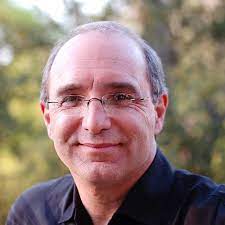It’s hard to ignore the seasonal emphasis on gratitude that surrounds holidays like Thanksgiving, Christmas, and Hannukah. But just what does it mean to be thankful?
In this episode we speak with Dr. Bob Duke to discuss the practice of gratitude and explore its relationship to mental and physical well-being. Bob is the Marlene and Morton H. Meyerson Centennial Professor of Music and Head of Music and Human Learning at the University of Texas at Austin’s Butler School of Music. He is also the co-host, together with Art Markman, of the public radio program and podcast Two Guys on Your Head, produced by KUT Radio in Austin. Bob’s research on human learning and behavior spans multiple disciplines
Ritualized Gratitude
“I think if someone were to ask me what’s the optimal time to be grateful, I would say, ‘When you’re awake,’” says Bob. “For many of us, there are so many things in life to be grateful for.”
Nonetheless, in American culture, we more typically set aside specific days, like Thanksgiving, to proactively practice gratitude.
“I see Thanksgiving as more of a ritualized holiday. It cues people to be thankful,” says Bob. “What I don’t see as much are personal interactions that are expressions of gratitude. Ritualized gratitude is a nice thing, but I think it’s even more meaningful when we express our gratitude directly to people in our lives.”
Our Brains on Gratitude
In addition to positively affecting the people to whom we express our gratitude, feelings of gratitude affect our own well-being, both mental and physical. Bob emphasizes the interconnectedness of our bodies and our minds.
Indeed, research demonstrates that feelings of gratitude generally reflect a perception that our body is in a positive condition of stasis, or equilibrium.
“Feelings of gratitude can lead not only to mental and emotional well-being, but also to greater physical health and physical well-being,” says Bob. “It’s because it’s all connected. Our bodies and our minds are all of a piece.”
Gratitude as a Conscious Act
By connecting us with others, gratitude also plays an important role in building healthy community.
“We are a social species,” says Bob. “Our species has thrived because of our ability to interact and cooperate and socialize with others. And I think personal interaction is a hallmark of expressing gratitude. Those positive interactions are part of what leads to all of us thriving.”
With community well-being in mind, purposeful and personal expressions of gratitude have great value. Indeed, expressing gratitude as a conscious act often leads to more spontaneous feelings of gratitude.
“When we think about gratitude being prompted, I sometimes hear people say, ‘Well, that’s not sincere. You’re just telling somebody to do that, and they’re doing it,’” says Bob. “But it doesn’t matter. What matters is that you’ve started this interaction that includes positive verbalizations and positive expressions between human beings. And that’s all to the good. Even before you feel it inside yourself, when you behave in that way it actually now generates a feeling inside. The actions can actually bring out the feeling.”
Gratitude for Our Good Fortune
Acknowledging and appreciating the unearned good fortune in our lives is an especially significant role that gratitude can play in our lives says Bob. He recognizes his own good fortune to have family nearby, good health, and meaningful work.
“When you think about the capriciousness of life experiences, to me that is a real incentive for even greater levels of gratitude. You recognize that you’re not the author of your own story entirely. There are a lot of things that have happened in your life to the good which you actually had very little to do with. And it doesn’t mean that what you did had no part in it. It’s just that there’s a lot of luck involved.”

